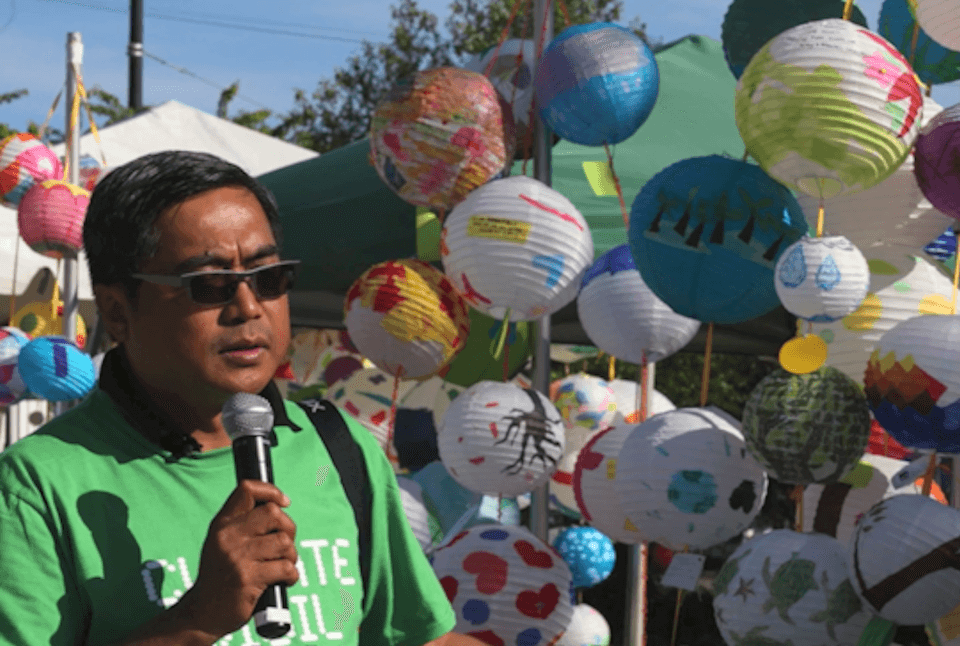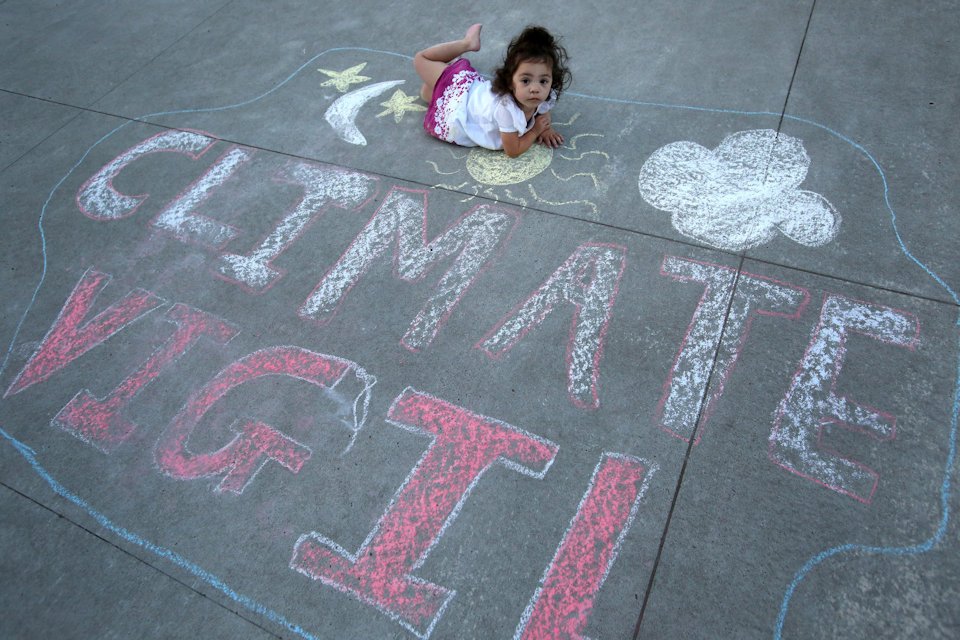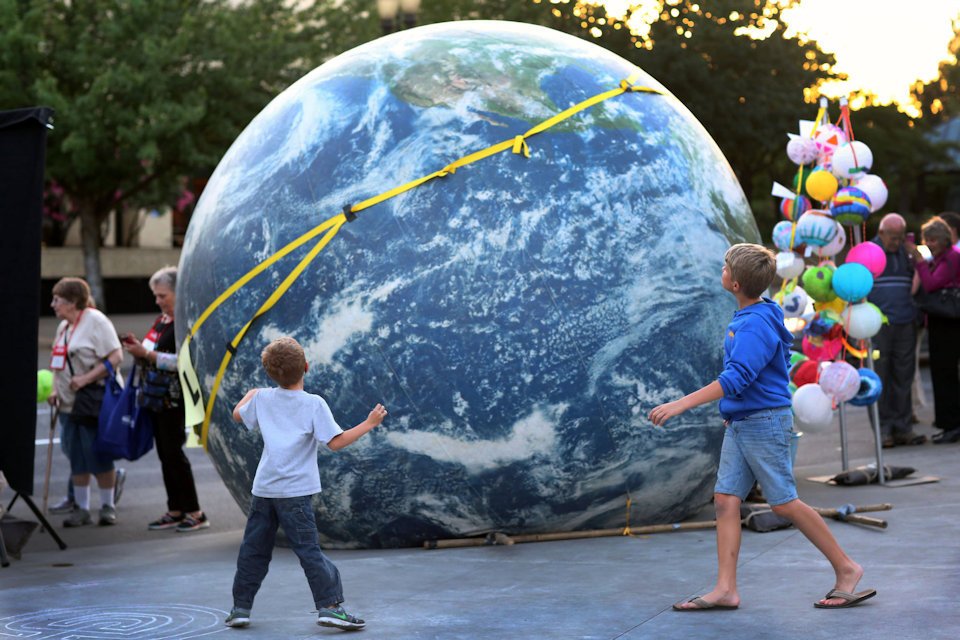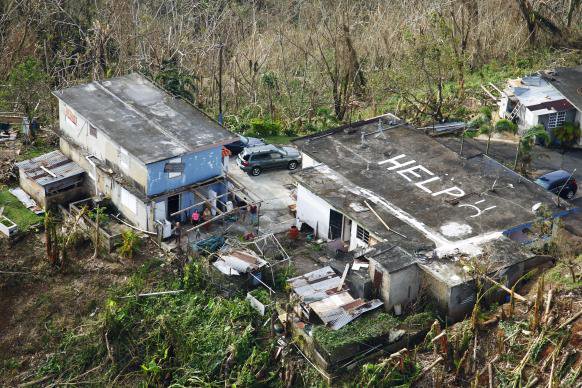Advent is a time to focus on how humans have failed in the God-given duty to care for God’s creation.
CYNTHIA B. ASTLE
United Methodist Insight
“But the day of the Lord will come like a thief, and then the heavens will pass away with a loud noise, and the elements will be dissolved with fire, and the earth and everything that is done on it will be disclosed.” – 2 Peter 3:10, NRSV*
“God gave Noah the rainbow sign / No more water but fire next time.” – “Mary Don’t You Weep,” an African-American spiritual
My friend the Rev. Jerry Eckert, a frequent contributor to United Methodist Insight, sends annual holiday greetings to all United Methodist bishops. This year, his letter touches on the same thing that troubles me this Advent. He mentions the recent federal climate change report that predicts within 12 years, “we will pass the point where damage to the Earth’s climate will be irreversible and becomes toxic to all life on Earth.”
Then Jerry writes with fervent bluntness:
“… WHAT THE HELL ARE WE DOING, SPENDING SO MUCH TIME AND ENERGY THIS FEBRUARY ON FUSSING OVER HOW TO DEAL WITH ISSUES JESUS NEVER EVEN TALKED ABOUT WHEN WE ARE FACING EXTINCTION?!” (emphasis his).
What the hell, indeed. It’s the hell we’ve created ourselves, according to the most recent report of the International Panel on Climate Change (IPCC)
Right now, as we’re buying gifts and hanging decorations and singing Advent carols, representatives of the United States, Saudi Arabia and Australia are at the United Nations’ climate conference in Poland advocating to loosen the restrictions on carbon emissions adopted in the 2016 Paris climate change agreement. In so doing, these countries and their supporters are opting to kill every living thing on Earth. We know because the signs of catastrophic climate change are everywhere, and they aren’t any “rainbow signs.” Climate change is burning up the planet; it is literally the fire next time.

What’s even more disheartening in this “end times” season of Advent is that we’ve known about the catastrophe headed our way and failed to act.
Few articles on climate change have filled me with as much anger and dread as the full-length feature, “Losing Earth: The Decade We Almost Stopped Climate Change” , in the Aug. 1 New York Times Magazine. Author Nathaniel Rich paints a sorrowful, shocking, maddening picture of how scientists, politicians and oil-and-gas executives knew by the late 1950s that carbon-dioxide emissions from burning fossil fuels were damaging Planet Earth. As Rich says in his introduction:
“Nearly everything we understand about global warming was understood in 1979. By that year, data collected since 1957 confirmed what had been known since before the turn of the 20th century: human beings have altered Earth’s atmosphere through the indiscriminate burning of fossil fuels. The main scientific questions were settled beyond debate, and as the 1980s began, attention turned from diagnosis of the problem to refinement of the predicted consequences. Compared with string theory and genetic engineering, the ‘greenhouse effect’ — a metaphor dating to the early 1900s — was ancient history, described in any Introduction to Biology textbook. Nor was the basic science especially complicated. It could be reduced to a simple axiom: the more carbon dioxide in the atmosphere, the warmer the planet. And every year, by burning coal, oil and gas, humankind belched increasingly obscene quantities of carbon dioxide into the atmosphere.”
While conducting search and rescue in the mountains of Puerto Rico after Hurricane Maria, a CBP (U.S. Customs Border Patrol) Air and Marine Operations Black Hawk located this home a half mile from the peak of a hill with HELP painted on its roof. More frequent and intense storms are one way climate change currently affects the world.
We’re experiencing the results of our failure right now. New York Times journalist Jon Mooallem wrote last year in, “Our Climate Future Is Actually Our Climate Present”:
“The future we’ve been warned about is beginning to saturate the present. We tend to imagine climate change as a destroyer. But it also traffics in disruption, disarray: increasingly frequent and more powerful storms and droughts; heightened flooding; expanded ranges of pests turning forests into fuel for wildfires; stretches of inhospitable heat. So many facets of our existence — agriculture, transportation, cities and the architecture they spawned — were designed to suit specific environments. Now they are being slowly transplanted into different, more volatile ones, without ever actually moving.”
These scenarios are not the stuff of fantasy. Mooallem again:
“…Last year, melting permafrost in Siberia released a strain of anthrax, which had been sealed in a frozen reindeer carcass, sickening 100 people and killing one child. … And low-lying cities around the world are experiencing increased ‘clear-sky flooding,’ in which streets or entire neighborhoods are washed out temporarily by high tides and storm surges.”
Viewed through the lens of faith, these factual reports point to a theological truth: we humans have failed in our God-given duty to care for and protect God’s creation. No magical mystical intervention can forestall the consequences that we’re now experiencing.
During Advent, we remember how John the Baptizer called people to “repent and rebel,” as the Rev. Bill Steward recently wrote. Repenting, turning away from wasteful habits, will be difficult, but rebelling against everything that fails to care for creation will be even harder. Think of your daily routine. How long is your commute? Are you the only person in your car? How often are you caught in a traffic jam, burning gasoline and emitting exhaust fumes? Do you sit in a long drive-through line to get a fast-food lunch made of beef from cattle raised on Amazonian land cleared of trees that cleanse the air of carbon dioxide? How do you heat and cool your home?
This nowhere-near-exhaustive list of personal actions counts for little next to the global changes that must take place.

On this front, there is a glimmer of hope from United Nations Secretary-General António Guterres in his address to the COP24 Climate Conference: “Climate change is the defining issue of our time – and we are at a defining moment. We face a direct existential threat.”
Guterres continues: “The mountain in front of us is very high. But it is not insurmountable. We know how to scale it. Put simply, we need to put the brake on deadly greenhouse gas emissions and drive climate action.
- We need to rapidly shift away from our dependence on fossil fuels.
- We need to replace them with clean energy from water, wind and sun.
- We must halt deforestation, restore degraded forests and change the way we farm.
- We need to embrace the circular economy and resource efficiency.
- Our cities and transport sectors will need to be overhauled.
- How we heat, cool and light our buildings will need to be rethought so we waste less energy.
“… Of course, warnings are necessary. But fear will not get the job done. No, what captures my imagination is the vast opportunity afforded by climate action.”
There it is, that tiny sliver of light in the darkness, hope overcoming fear. Claiming such hope requires our steadfast action, not only in changing personal habits, but in community engagement to foster policies and practices that will restore our connections with the natural world we’ve pillaged to the point of extinction. One example: supporting the EarthKeepers program of the United Methodist General Board of Global Ministries, a new kind of missionary class whose objective is to model and teach sustainable practices in local communities.
Faced with both threat and promise, here is my hope for Advent 2018: that we commemorate the birth of Jesus, the Christ, through whom all creation came into being (John 1:3), with a new commitment to save the planet where he chose to become human for our sakes. That would indeed be joy to the world.
Additional reading:
COP24: “Time for reflection and deliberation is long gone”, says Ecumenical Patriarch
COP24: Global church bodies urge transformative action to protect the most vulnerable
Care for creation and climate justice: the World Council of Churches and climate change
New York Times Climate Newsletter
*New Revised Standard Version of the Holy Bible, copyright 1989 and 1995 by the Committee on Christian Education of the National Council of Churches of Christ, USA. Used by permission. All rights reserved.
~ Cynthia B. Astle serves as editor of United Methodist Insight, which she founded in 2011. This perspective is reprinted with permission from the December 14, 2018 edition.
Last Updated on October 31, 2023


